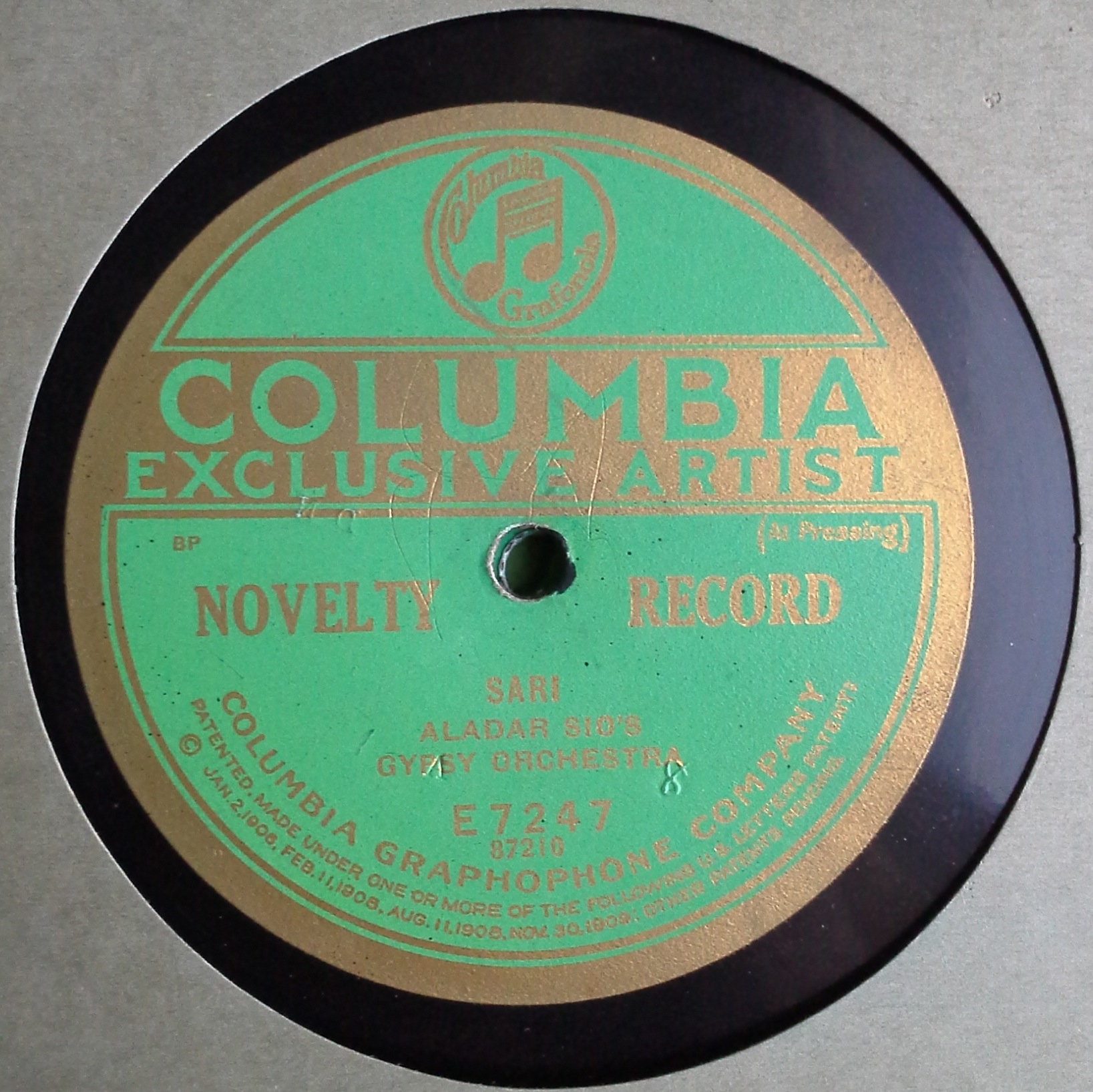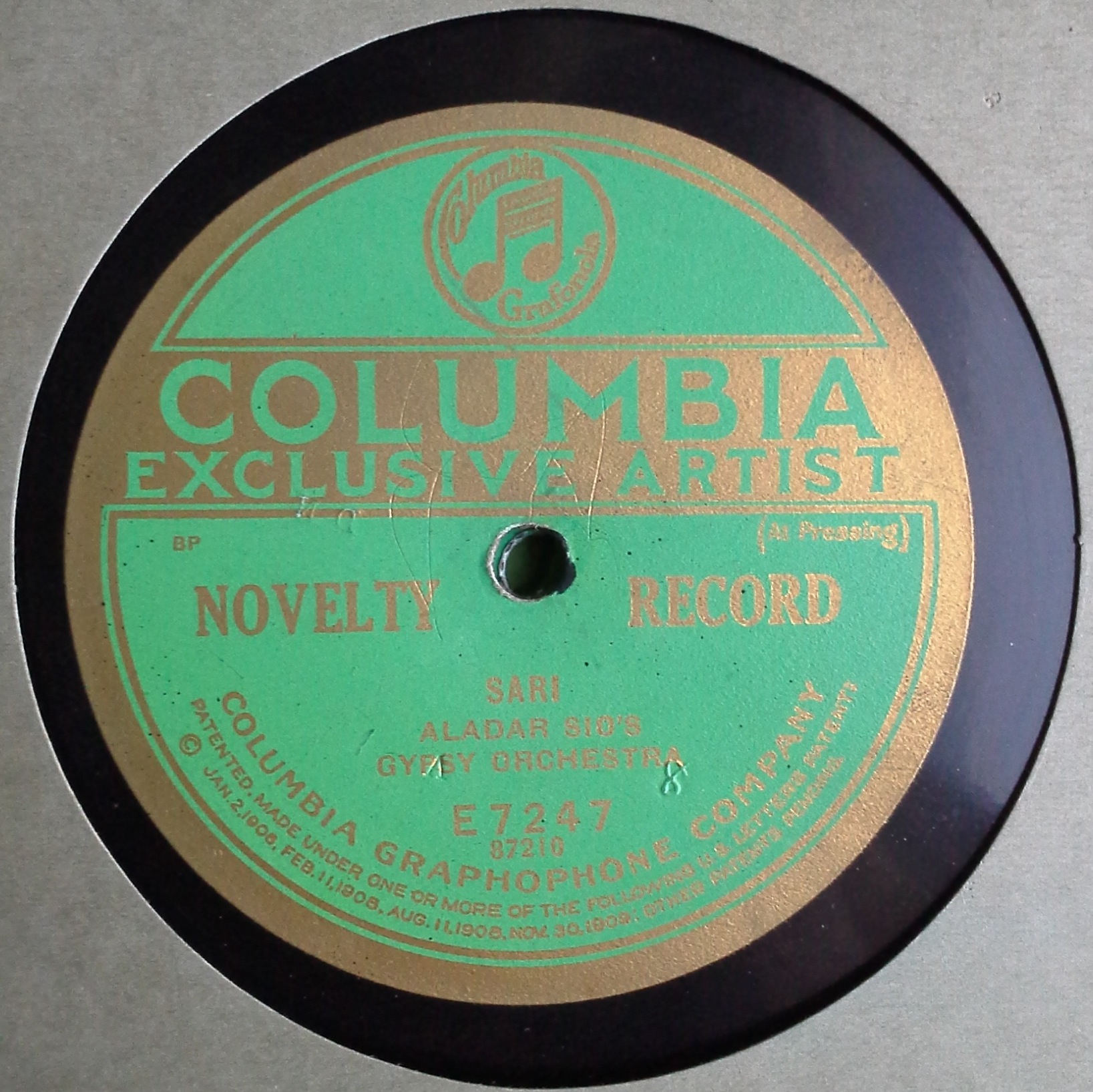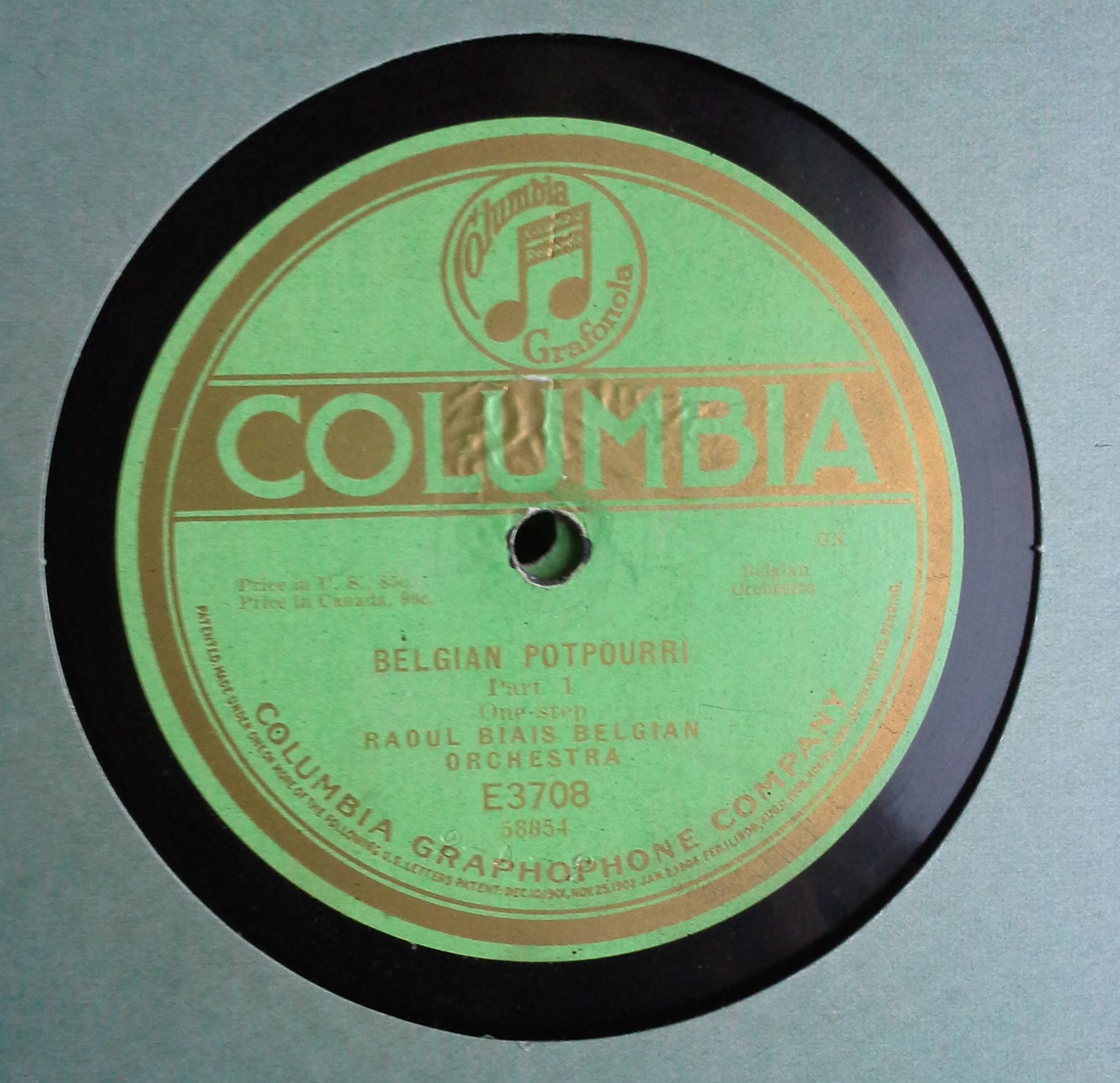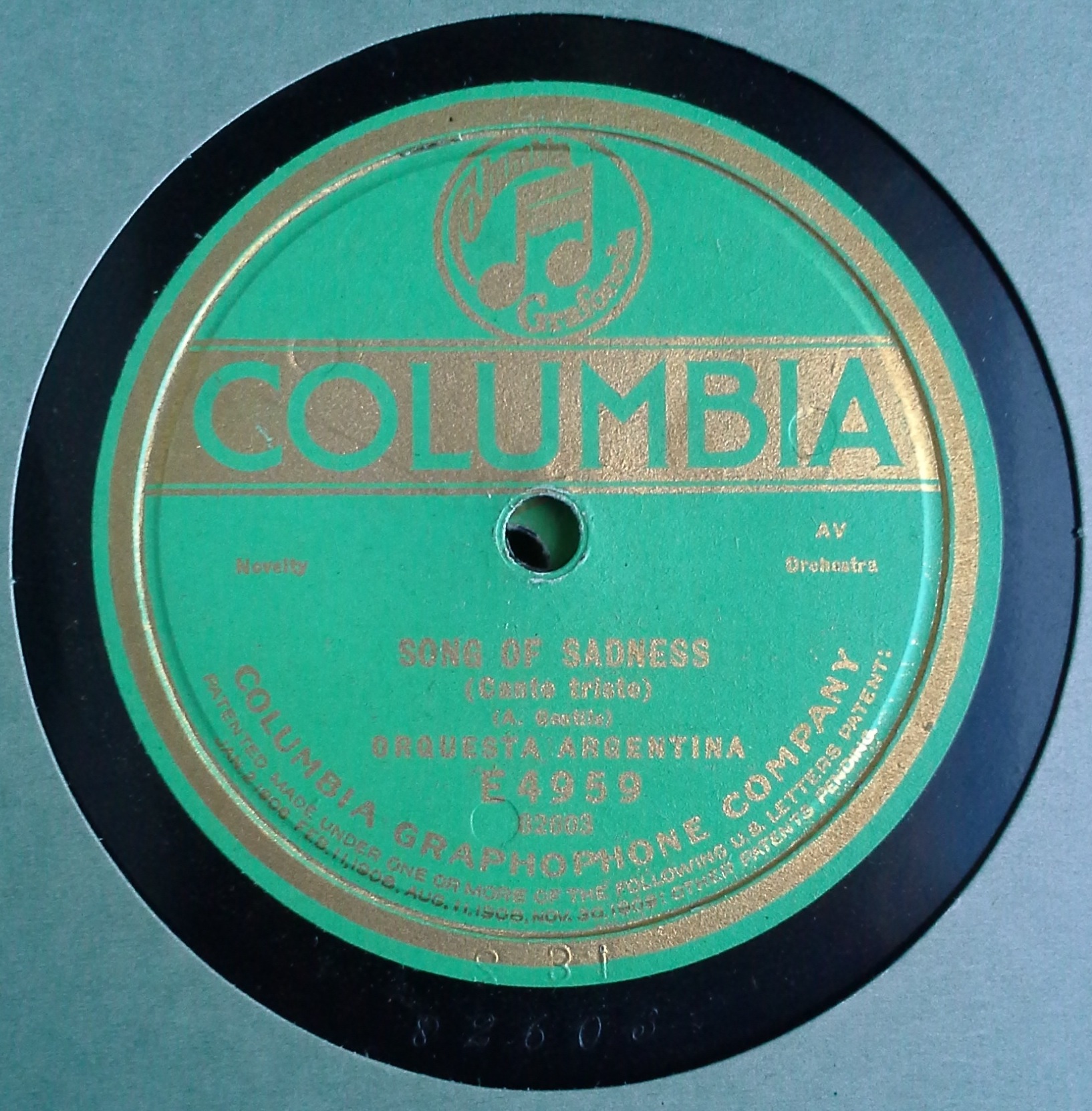A couple of weeks ago I responded to a Craigslist post from Lyman, Me., where several hundred 78s were stuffed into a plastic shed. They were obviously moldy and damp, and I didn’t expect much. It’s hard enough to find great old records in the South (where the hillbilly and “race”* records I care the most for were predominantly sold), and despite there once having been a furniture store on Congress St. that sold Vocalion’s line of old-time records in the mid-1920s, well, good luck turning any of those up, neighbors. (But let me know if you do?)
Anyway, my girlfriend Dana, my dog Ruby, and I made a day of it, first stopping to pick up a spinning wheel in Parsonsfield for Dana, and then heading down to a pond outside Lyman, along which our man Chris lived. He was somewhat apologetic about asking for money for the records — he was a house-clearer by trade and everything he got he got for free — but his bodily largess and nascent Parkinsons made hauling the things around difficult, the labor of which he valued at $20. I was happy to give him the money, as three fresh-caught rainbow trout were added to the 300 or so records, and when we got back to Portland, I found among all the expected light opera and staid mid-teens’ dance bands some interesting titles in Columbia Records’ “ethnic” series:
All told there were 20 international titles, some identified as “novelty” performances, all with label numbers with the “E” prefix identifying them as “ethnic” records. Italian, Belgian, Argentinian, Mexican, Polish, Russian, “Gypsy.” You know — “ethnic.” These records provide the slimmest glimpse of the utterly massive quantity of international musics released on American commercial records in the first third of the 2oth century. Many of these were recorded and first released abroad, in their home countries, and reissued in America for diasporic consumption; others were recorded at home by professional, urban ensembles putting on the ethnic vibes. None of these are particularly incredible records, but all are interesting specimens, and were worth the trip to Lyman. The rainbow trout fried up deliciously, too.
Here, however, is an “ethnic” performance that we listened to on our way that vindicated simply getting up that day; one of those pieces of music that nearly demands pulling off the road till it’s over, and that makes you wonder how you’ve managed to live till that moment without hearing it. A friend named Christopher King sent it to me, on one of four CDs of traditional Epirotic music, soon to be released on the English JSP label under the totally underwhelming title “Beyond Rembetika.” (See this article for an introduction to that famous music of the Greek underworld.)
Chris is one of the world’s foremost collectors not only of pre-war American vernacular music, but also records from Albania and Epirus, in Northern Greece, and the music in his forthcoming set was drawn entirely from his collection and remastered by his own painstaking hand. He’s also a legendary — and I don’t think that’s too hyperbolic an adjective — engineer, responsible for teasing out previously unheard elements from beat-up old 78s by sublime blues performers like Charley Patton and Geeshie Wiley and, arguably, the peerless Cajun accordionist Amédé Ardoin. The emotional effect of this record is up there with the best of them.
*The pre-war catalogs of blues, gospel, and black string-band music marketed to African Americans were characterized thusly.





